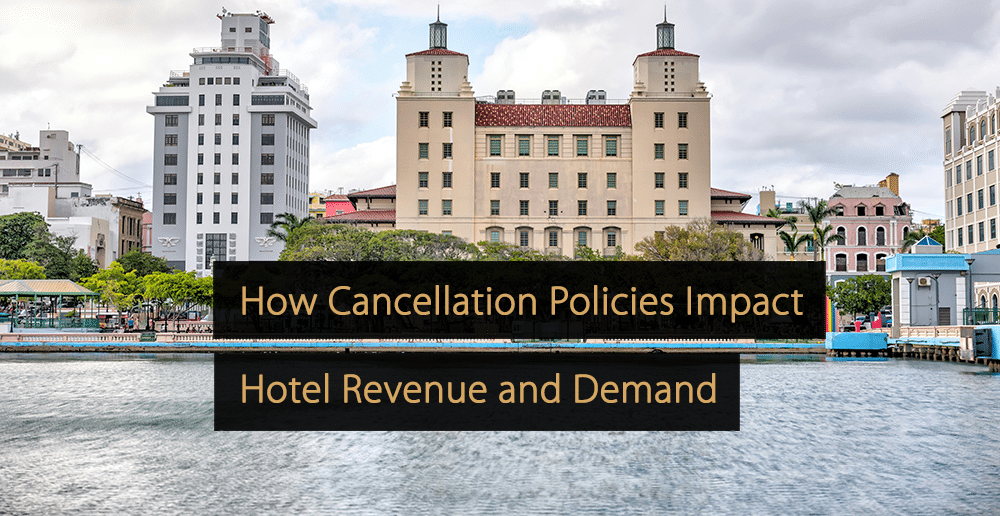Embracing data-driven decision-making is vital for hotels looking to thrive in today’s competitive environment. From identifying top revenue-generating channels to tracking total revenue per available room (TrevPAR) and managing costs, having access to interconnected data allows hoteliers to make quick, informed decisions that can boost operational efficiency, elevate the guest experience, and drive revenue growth.
Unlocking Hotel Success with Data-Driven Business Intelligence
Hotel business intelligence (BI) is key in this data-centric approach. By collecting and analyzing data from different sources, including your property management system (PMS), revenue management system (RMS), channel manager, payment gateway, and more, you can have a comprehensive view of your property’s performance and make strategic decisions based on it.
In this article, you’ll learn key areas where BI can significantly enhance hotel management and present five crucial questions your hotel data should answer to help you improve strategic decision-making.
Key Areas of Focus for Hotel Data
Understanding your data is essential for driving growth and avoiding stagnation. By honing in on key areas, you can uncover actionable insights that propel your business forward. Hospitality business data can be broken down into three main areas:
1. Performance data
Performance data encompasses the key performance indicators (KPIs) that hotels use to monitor their success. There are several types of performance data:
- Reservation behavior: This information enables a better understanding of guest preferences, top-performing channels, and patterns to effectively target the right guests at the right time.
- Revenue management: Revenue management metrics can help predict demand and optimize pricing and distribution to maximize profit.
- Operations: Operational metrics provide details on costs related to daily operations, labor, and staffing.
- Finance and accounting: These metrics look at real-time data to provide pricing suggestions and pinpoint potential cost savings.
- Marketing data: This data reports on how well your channels are performing and can help guide future marketing campaigns.
2. Market and benchmarking data
Market and benchmarking data offer insights into your hotel’s performance compared to your competitors. Hotels can leverage external sources like STR or internal software solutions to gather data. A revenue management system, for example, can assess your current market position by analyzing your competitors’ data, along with your historical, real-time, and future insights. This enables you to adapt your strategies as needed to maintain a competitive edge.
3. Guest data
Guest data offers a wealth of information to enhance the guest experience. From targeted marketing campaigns and personalized communications to in-person interactions, hotels can gather data to personalize every step of the guest journey, from the discovery period to post-stay.
5 Essential Questions Your Data Should Answer
Harnessed in the right way, your data can tell you a lot about your property’s performance and help guide strategic decisions. While there are countless insights you can gather from your data, here we focus on five crucial questions it should be able to answer.
1. What is Our Total Revenue per Available Room?
Knowing your TRevPAR is important because it reflects the total revenue performance of the entire property, not just the rooms. The revenue from spas, restaurants, parking, and other products and services sold at your property impacts your overall earnings; including these in the equation lets you have a more comprehensive view of your financial performance and will open up more opportunities to grow.
2. How Does Our Occupancy Trend Over Time?
Understanding occupancy trends over time can help maximize revenue and improve overall operations. Looking at occupancy data as a whole enables hotels to optimize revenue by adjusting pricing and promotions based on demand patterns. It also helps with efficient resource allocation, ensuring that staffing and operations align with guest volume during high and low seasons or special events.
3. Which Sources Drive the Best Bookings?
Certain guest segments are more profitable than others, and some channels attract a more suitable type of guest for your property. If you receive a high volume of bookings from guests who don’t fit your target audience, it can lead to dissatisfaction for them and negative reviews for your property. Therefore, it’s important to take a holistic look at your booking sources and prioritize the ones that attract your target audience. Once you determine which sources are more cost-effective for your property, you can use your data to plan your marketing strategies around the most profitable ones.
4. Where are We Losing Money?
With fragmented data and room-centric approaches to revenue, it can be hard for hotels to know if they’re leaving money on the table. Labor, operational, and guest acquisition costs can add up, while potential profits from other areas, such as parking and dining facilities, might go unnoticed.
To optimize revenue, hotel owners should assess their overall income, evaluate profitability across all segments and distribution channels, and make necessary adjustments to their strategies when discrepancies are identified.
5. What are Our Huests’ Preferences?
Having a clear understanding of who your ideal guest segments are is crucial for tailoring your marketing strategies and services to meet their specific needs and preferences. Today’s guests want personalized, intimate experiences. By tracking and analyzing their preferences, you can work towards meeting and exceeding their expectations, fostering loyalty for future stays.
The Future of Business Intelligence in the Hotel Industry
The future of business intelligence (BI) in the hotel industry lies in breaking down data silos and fostering interconnected insights across all departments. By integrating data from operations, marketing, finance, and guest services, hotels can make more cohesive and strategic decisions that enhance overall efficiency, improve guest experiences, and optimize revenue opportunities.
Free Guide: Group Business Guide: How Hotels Can Attract & Cater to Groups
In this guide, you’ll learn why group business is vital for independent properties, discuss group pricing strategies, including how to conduct a displacement analysis, and offer ideas to deliver seamless group experiences every time.
Click here to download the guide “How Hotels Can Attract & Cater to Groups“.
More Tips to Grow Your Business
Revfine.com is the leading knowledge platform for the hospitality and travel industry. Professionals use our insights, strategies, and actionable tips to get inspired, optimize revenue, innovate processes, and improve customer experience.Explore expert advice on management, marketing, revenue management, operations, software, and technology in our dedicated Hotel, Hospitality, and Travel & Tourism categories.








Leave A Comment